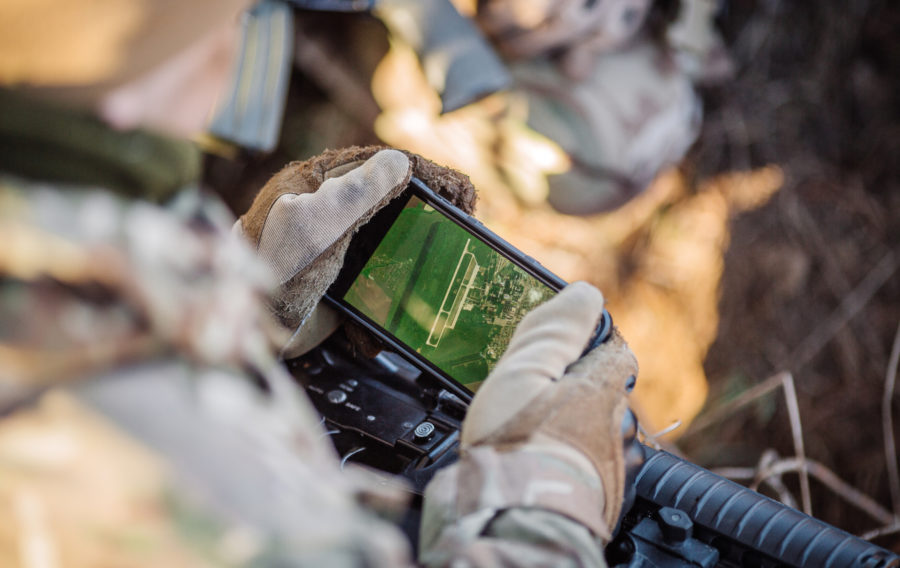
In a Defence Online exclusive, Mivy James – Head of Consulting for National Security in Defence at BAE Systems Applied Intelligence – talks us through her plans for the Three Counties Defence & Security Expo 2018 (3CDSE), due to take place on 31 May at the Three Counties Showground in Malvern.

Thank you for taking the time to speak with Defence Online, Mivy. Could you firstly tell our readers a little about your professional history and how you came to work at BAE Systems Applied Intelligence?
I started in the industry well over 20 years ago as an Analyst Programmer. Assuming that your readership is largely defence based, one of my first projects was Bowman-related which puts the timeframe into context. I moved from technical team leading and system design roles into the sort of thing I do now – technical advisory work on complex and large national security and defence programmes.
I’ve been with BAE Systems for 12 years. That’s when I moved into system design from more of a client side advisory perspective and the scale of that work has only gotten bigger over time. I also have experience with security architecture as well, so I’ve a bit of background in cyber.
I understand you will be a keynote speaker at 3CDSE 2018. Without giving too much away, what are you hoping to discuss with the defence and security community? What do you see as being the year’s hot button issues?
One of the things I know the defence industry is looking at – it’s finally becoming a reality in the consumer world as well – is the Internet of Things (IoT). I actually remember attending a conference on IoT around the year 2000 but it’s become a reality only recently.
I want to look at wearable technology, which I suppose is more of a personal IoT, and some of the challenges around the military application of this – specifically, data protection and the cyber security aspects of that. There’s been quite a high profile issue raised recently with military personnel wearing fitness tech, publishing their routes and bases being identified because of that. How do we avoid this sort of thing? Data privacy, artificial intelligence and consumer wearable tech are the things that I’m looking to pull together into a story that I think is compelling for the defence sector.
Is consumer technology having a noticeable impact on defence sector innovation?
The interesting thing about the defence industry is that it’s got a really long history of developing innovate technology. What’s not so normal is using commercial technology – particularly consumer technology – in a defence application, largely for security concerns.
The cycles of developing new technology are getting faster and faster, but it’s reaching a point where we could be missing out on a window of opportunity if we don’t look at doing this in a safer way. There’s a big drive to lower the cost of buying technology and a shift in how cyber risk management works. Custom building everything from the ground up is prohibitively expensive but I’d be keen to see this become more mainstream in the defence sector.
The tech start-up industry is absolutely huge as well. I go to quite a lot of tech forums and the number of people present from tech start-ups has really increased. There’s a lot more investment available – everyone wants to be the next Elon Musk. It’s something that appeals to a lot of people, to have the next great idea, and start-ups have a role to play alongside the more traditional routes of working with academia or in-house research. We have our own research facilities but we also partner with SMEs and academia so we that we’re not attempting to reinvent the wheel on something somebody else is looking at already.
A continued programme of innovation will be hugely important if the Ministry of Defence is to maintain its competitive edge. How is BAE Systems Applied Intelligence pushing the envelope currently?
A fairly recent example of BAE Systems’ innovation is the signal processing work that we’ve been doing for the European Space Agency. We’ve been looking at how this can be applied to the defence sector, specifically the ‘Future Beyond Line of Site’ programme – an innovative strategy specially developed for the space industry.
Why 3CDSE? What differentiates this expo from others in the defence and security calendar?
3CDSE has a more intimate scale than some of the other events, which are mindbogglingly large. We think this will give us an opportunity to have better conversations with some of the people there. Here the focus is very much on innovation and we serve clients across the three counties (Herefordshire, Worcestershire and Gloucestershire) as well, making it a really important event for us.
Is there anything in 3CDSE’s packed events programme that you’re especially excited for?
Rather parochially, I’m particularly interested in hearing from the various speakers who work for our client organisations to get more insight into their own hot topics and industry concerns. Something else that looks particularly appealing and is in line with some of thing things that I’ve just been talking about – specifically wearable tech – is future force development and innovation.
Could you talk a little about the role events like 3CDSE play when engaging with the wider defence and security community?
Looking at the other presenters and exhibitors, there are some we know and some we don’t. 3CDSE gives us an opportunity to find out more about the defence landscape and look for SMEs to partner with, particularly if they’re in the world of innovation.
While BAE Systems is an extremely well-known brand the bit of the business that I work for – Applied Intelligence – is less well-known, as is our capability – our digital engineering expertise and everything that comes with it. That’s another reason why we’ve chosen 3CDSE. It’s a big opportunity for us to present ourselves in this kind of domain.
To find out more about the Three Counties Defence and Security Expo (3CDSE) 2018, visit www.3cdse.co.uk or email info@3cdse.co.uk.







